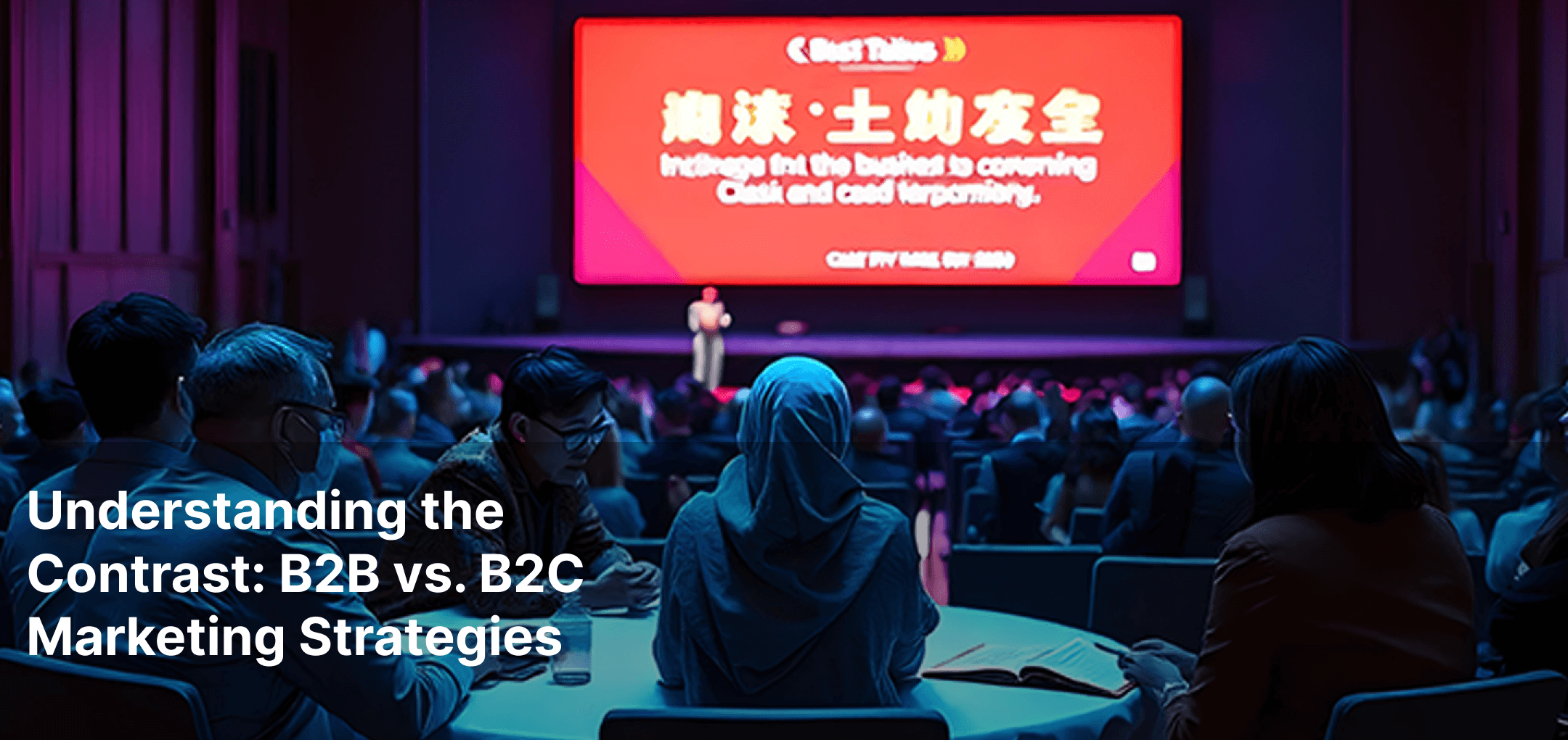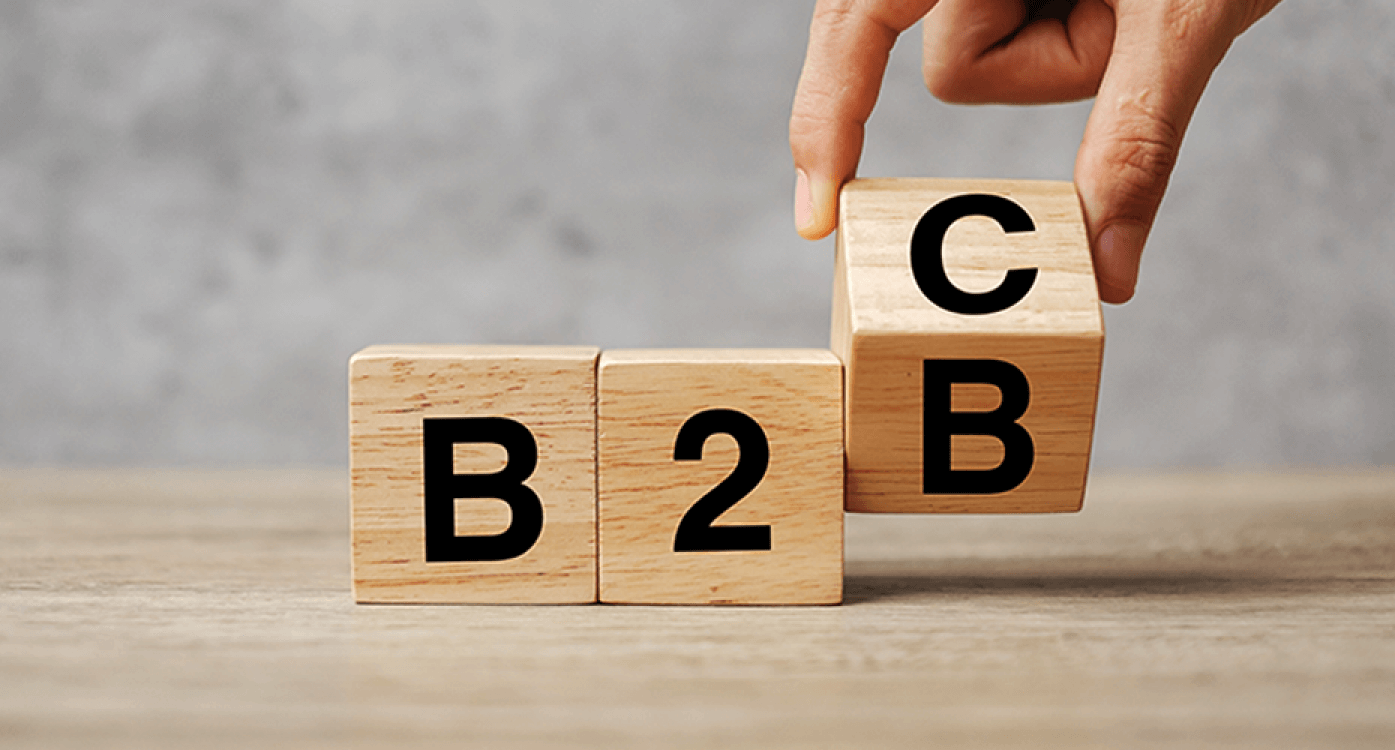
Businesses need marketing. It ensures visibility and awareness among target audiences and plays a pivotal role in acquiring new customers by identifying and fulfilling their needs effectively while simultaneously building and reinforcing the brand's identity and reputation. However, marketing strategies differ significantly between B2B (business-to-business) and B2C (business-to-consumer) environments.
Key differences between B2B and B2C marketing strategies
B2B marketing focuses on complex buying decisions involving multiple stakeholders, emphasizing relationship-building, demonstrating value, and providing solutions tailored to business needs. It often involves longer sales cycles and targeted, personalized communication.
Conversely, B2C marketing aims to reach individual consumers, leveraging emotional appeals and mass media to influence quicker purchasing decisions. It emphasizes convenience, lifestyle alignment, and immediate benefits to drive sales and foster brand loyalty. Understanding these differences is crucial for developing effective marketing strategies that resonate with the specific audience and achieve desired business outcomes.

Building Strong Connections: Relationship Building in B2B & B2C
B2B buyers need a more personalized and hands-on relationship than B2C buyers. B2B prospects must often persuade several internal stakeholders that your solution is essential and justifies the cost. The process of acquiring a B2B buyer generally requires more time due to the intricate decision-making involved, whereas acquiring B2C customers often demands a greater financial investment. B2C customers face a constant influx of advertisements, so it takes considerable time, effort, and spending to make your product stand out. However, once you capture a consumer's attention, a swift purchase is more likely.
When targeting B2B customers, keep in mind that they are experts in the given subject matter and are only helping them in better decision making and save their team time and money. Start building a relationship with B2B buyers by providing relevant thought leadership content as part of your overall content marketing strategy aimed at these clients.
Prioritize logic and education in your B2B marketing approach. Focus on enhancing the customer's knowledge of your product rather than appealing to their emotions. Empower your customers to articulate the value of your product effectively.
B2C customers value quality, competitive pricing, and swift solutions to their needs, fostering loyalty to preferred brands. Ensuring a seamless digital customer experience is essential, as any website glitches can deter potential customers. Avoid overwhelming them with excessive newsletters and blog content; instead, maintain a more transactional approach while demonstrating understanding of their concerns and desires. Personalize marketing efforts to showcase comprehension of customer priorities, guiding them toward conversions on your site. Implement strategies such as recommending related products and encouraging reviews with incentives like discount codes to attract prospects and gather valuable feedback.

Want to attract new customer!! How?
In B2B, emphasize on ROI. In the professional realm, companies are favored for their demonstrated expertise, prompting B2B marketers to appeal to stakeholders' logical reasoning and ensure confidence in purchasing decisions.
As a result, B2B marketing content predominantly centers on showcasing ROI (Return on Investment) through various means: creating informative content, both short and long-form, that highlights the company's proficiency and the financial benefits of its products; using case studies to illustrate how their offerings save buyers money, resources, and time; organizing webinars, events, or workshops to demonstrate the versatility of their products in diverse business settings; and producing succinct videos that outline the unique features and advantages of their products. At times, B2B marketers may also conduct competitive comparisons to underscore their product's superiority, emphasizing why their solution delivers exceptional ROI.
In B2C communication, it's essential to keep things simple and relatable. Avoid using trendy buzzwords or complex jargon that might confuse your audience or make your brand appear insincere. Instead, develop a unique voice and incorporate humor when appropriate to build a personal connection with consumers and gain their trust in understanding their needs.
Clearly emphasize the benefits of your product and highlight how quickly consumers can get their hands on it. Ensure that purchasing is seamless, allowing consumers to buy directly from ads and complete the checkout process quickly. This approach enhances the consumer experience and encourages immediate action.

Building Trust
In B2B marketing, it's crucial to convey to customers that you understand their priorities and how your product will positively impact their operations. Show them the potential changes your product can bring to their daily routines and highlight the additional projects they can pursue with the time and cost savings it provides. Providing specific metrics like hours saved or reduced costs helps them build a strong business case for choosing your solution. B2B software companies can bolster confidence by offering demos or trial periods to demonstrate the effectiveness of their products. Instead of relying on aggressive advertising, focus on subtle and sophisticated methods such as publishing SEO-optimized, informative articles that softly advocate your solution. Additionally, engage your B2B audience through webinars and reports to establish thought leadership, gather valuable contact information, and foster trust among customers.
When targeting consumers, focus on presenting your product or service's benefits quickly and engagingly, as they typically have specific needs in mind. B2C ads should impress customers and prompt immediate purchases, while maintaining a consistent, recognizable brand voice. Building trust through consistency and familiarity encourages customer loyalty. Utilize the keywords consumers use to search for products like yours in your ads, blogs, and product pages to enhance your search engine rankings. Ranking higher in search results increases the likelihood of consumers visiting your site over competitors, maximizing conversion opportunities.
Why should you partner with BusinessBrand for marketing strategy?
B2B and B2C companies stand to gain significant advantages by partnering with BusinessBrand, a design agency specializing in marketing strategy. BusinessBrand offers tailored expertise in creating compelling visual identities and strategic brand communications that resonate effectively across diverse audiences. Whether targeting B2B clients with professional and persuasive collateral and optimized digital experiences, or engaging B2C consumers through captivating brand narratives and impactful advertising campaigns, BusinessBrand ensures consistency and innovation in every aspect of marketing. By choosing BusinessBrand, companies can leverage creative excellence to strengthen brand presence, enhance customer engagement, and achieve measurable growth in competitive markets.
